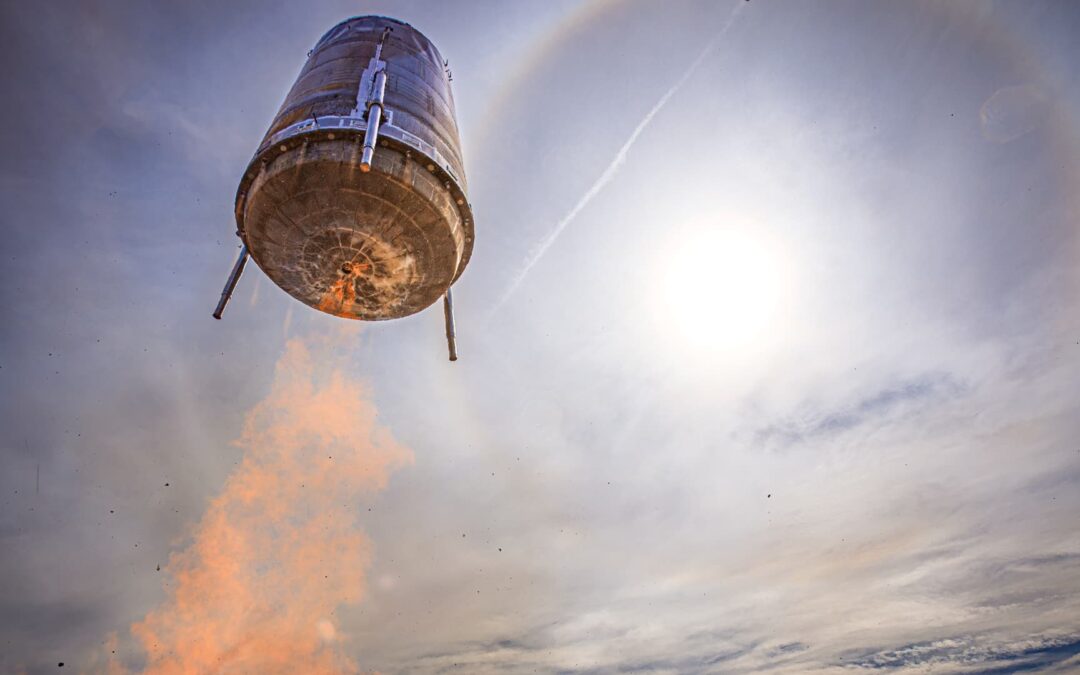The company’s prototype vehicle “Hopper2” flies during a low-altitude launch and landing demonstration on Sept. 17, 2023 in Moses Lake, Washington.
Stoke Space
Washington-based startup Stoke Space raised $100 million in new funds, the company announced Thursday, as it aims to develop a fully reusable rocket called “Nova.”
Stoke’s latest investment round was led by Industrious Ventures – with the firm’s Steve Angel, chairman of chemicals giant Linde, joining the Stoke board of directors. The space company’s fundraise was also joined by investors including the University of Michigan, Sparta Group, Long Journey, Bill Gates’ Breakthrough Energy, YCombinator, Point72 Ventures, NFX, MaC Ventures, Toyota Ventures and In-Q-Tel.
Founded in 2019, Stoke had previously raised $75 million to date. A company spokesperson declined to comment on Stoke’s post-money valuation.
“The priority is to be able to keep the pedal to the metal and continue to develop in order to get to market as soon as possible and really fortify what is still a very fragile commercial space economy,” Stoke co-founder and CEO Andy Lapsa told CNBC.
Sign up here to receive weekly editions of CNBC’s Investing in Space newsletter.
Stoke’s fresh backing comes weeks after the company completed a low altitude launch of its vehicle “Hopper2,” in which the rocket-powered prototype flew to about 30 feet before landing successfully after 15 seconds.
While a number of U.S. companies are aiming to develop reusable rockets to compete with the success of Elon Musk’s SpaceX, Stoke is taking a different approach from its rivals. Lapsa explained that the company has been developing and testing the second stage of the rocket before the first stage, because “it’s not something that can be tacked on and added later.”
“First of all, the technology solution wasn’t out there yet, [and, second,] we wanted to know what that looked like in order to build the right first stage to go under it,” Lapsa said.
Stoke is developing Nova to be a “medium” class rocket that can deliver 5,000 kilograms to low Earth orbit. That puts Nova in the middle of the launch market, between Rocket Lab’s “light” Electron and SpaceX’s “heavy” Falcon 9 in terms of capability.
An artist’s rendering of the “Nova” rocket design.
Stoke Space
Stoke has 95 employees currently, with a manufacturing and engineering facility in Kent, Washington, and a test facility in Moses Lake, Washington.
Earlier this year Space Force assigned Stoke with a launchpad at Cape Canaveral, Florida, which Lapsa said the company is starting to develop. Next up will be evolving its “Hopper2” vehicle “into an orbit-ready second stage,” Lapsa said, and building the large first stage of the rocket, all of which should be “coming together pretty soon.”
“We’re trying to position ourselves to provide the best value to the satellite industry, in order to really shorten the time from factory to revenue,” Lapsa said.









